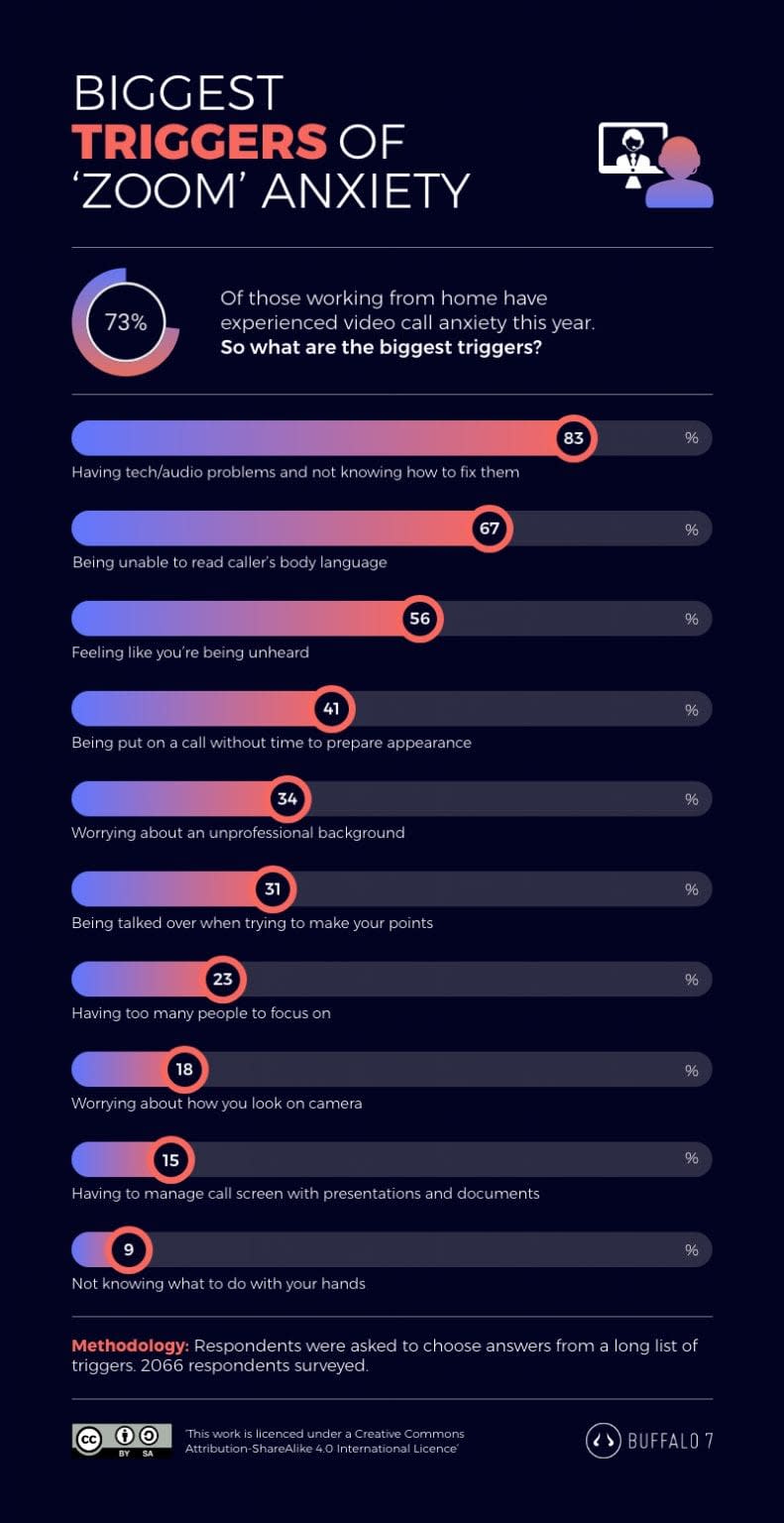73% of Brits have suffered from 'Zoom anxiety' in past year
A huge percentage of Brits (73%) say they have experienced ‘Zoom (ZM) anxiety’ in the past year, a feeling of panic when asked to join a video call, as most people are forced to work from home amid the coronavirus pandemic and ensuing lockdowns.
Presentation design agency Buffalo 7 surveyed 2,066 home workers across the UK and found that 83% of respondents said having technical issues and not knowing how to fix them was their biggest ‘Zoom anxiety’ trigger.
Some 76% said they found that video calls made them more anxious than telephone calls, and 48% found them worse than face-to-face meetings.

Other triggers included not being able to read the body language of the person they are on a call with – 67% said this caused them anxiety – and being put on a call without having time to fix their appearance (41%).
Around 34% said they worried their surroundings might look unprofessional, and 42% said presenting on a call was the task they found the most challenging.
The report noted that “with so much of the working world moving into the home, video calling tools like Zoom, Teams and Hangouts have become vital for keeping organisations communicating.
But whilst such technology makes it easy to stay connected, the widespread adoption of video calling has brought its own set of challenges.”
It explained that many feel “unnatural and awkward” when having to speak on camera.
The reports findings are supported by Google (GOOGL) data, which shows a whopping 180% increase in UK residents searching for the term ‘Zoom anxiety’ between March and November of this year.
READ MORE: Zoom and Instagram enter ranks of 'best' global brands
James Robinson, marketing manager at Buffalo 7, said that those suffering from this phenomenon should discuss this with their boss.
The firm said that asking colleagues if a call is really necessary, and checking to see if the work can be done more efficiently in other ways such as by adding notes onto a shared document, could be one way to alleviate the problem.
Employees can also ask their boss if cameras are required on every call, and if they are, “try putting your camera on a side angle not face-on - you’ll focus less on yourself,” the report suggested.
Giving oneself time between calls to “recharge” and asking to be given sufficient notice before a call are also ways that anxiety can be lessened.
As for those struggling with presenting on video, Buffalo 7’s report suggests testing a presentation with a friend beforehand to be prepared for any potential tech and audio issues; brushing up on skills such as how to share screens and how to fix common microphone problems; and checking your internet connection before you start the real call can help.
WATCH: How To Answer Difficult Interview Questions

 Yahoo News
Yahoo News 